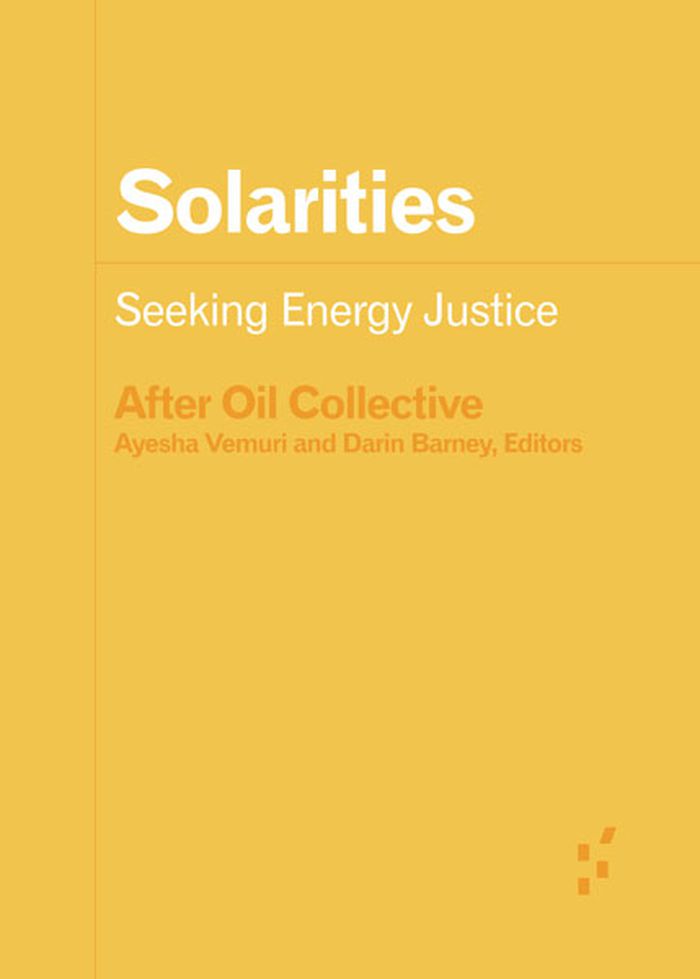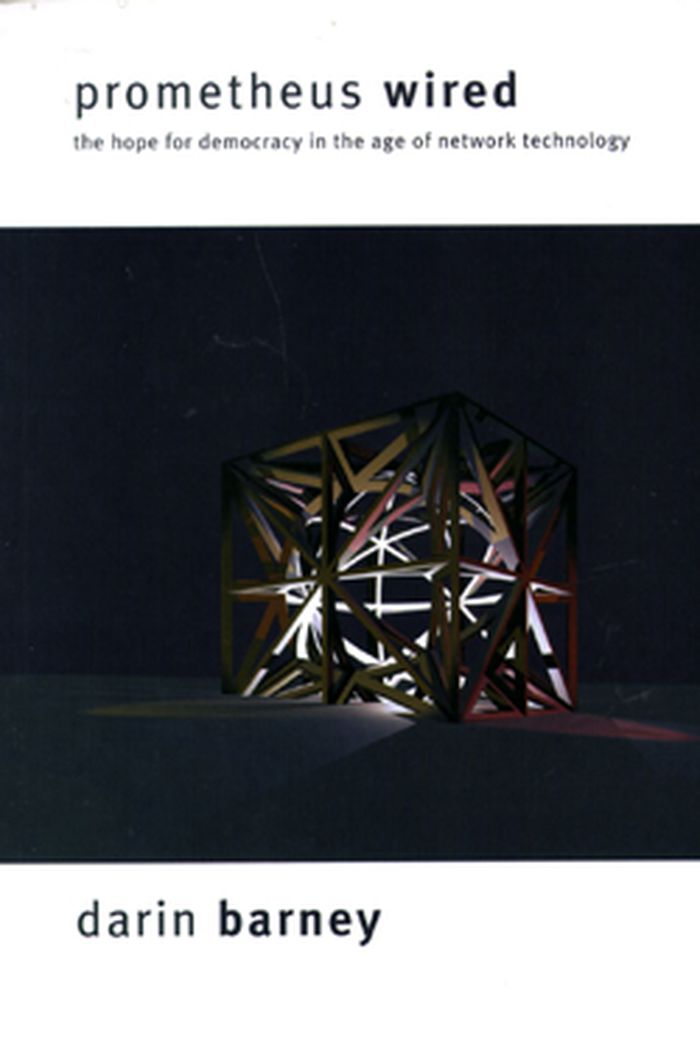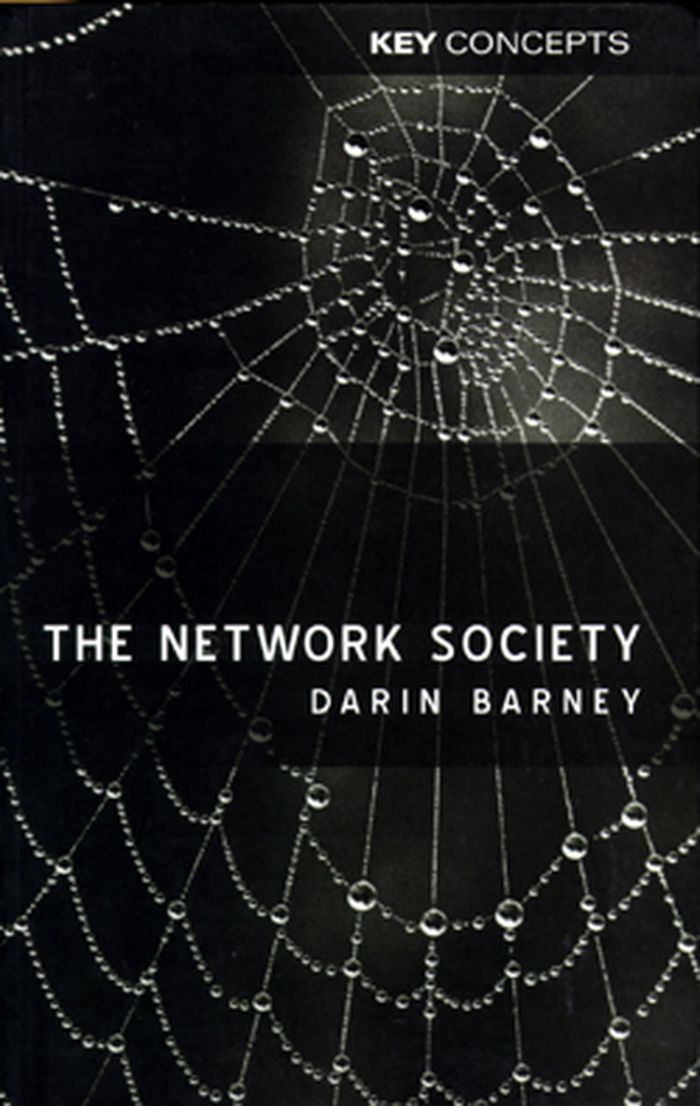$13.99
(available to order)
Summary:
This book considers the possibilities of organizing societies and economies around solar energy, and the challenges of a just and equitable transition away from fossil fuels. Far from presenting solarity as a utopian solution to the climate crisis, it critically examines the ambiguous potentials of solarities: plural, situated, and often contradictory.
Environment and environmental theory
May 2022
Solarities: Seeking energy justice
Actions:
Price:
$13.99
(available to order)
Summary:
This book considers the possibilities of organizing societies and economies around solar energy, and the challenges of a just and equitable transition away from fossil fuels. Far from presenting solarity as a utopian solution to the climate crisis, it critically examines the ambiguous potentials of solarities: plural, situated, and often contradictory.
Environment and environmental theory
$32.95
(available to order)
Summary:
In Prometheus Wired, Darin Barney debunks claims that a networked society will provide the infrastructure for a political revolution and shows that the resources we need for understanding and making sound judgments about this new technology are surprisingly close at hand. By looking to thinkers who grappled with the relationship of society and technology, such as Plato,(...)
Prometheus wired: the hope for democraty in the age of network technology
Actions:
Price:
$32.95
(available to order)
Summary:
In Prometheus Wired, Darin Barney debunks claims that a networked society will provide the infrastructure for a political revolution and shows that the resources we need for understanding and making sound judgments about this new technology are surprisingly close at hand. By looking to thinkers who grappled with the relationship of society and technology, such as Plato, Aristotle, Marx, and Heidegger, Barney critically examines such assertions about the character of digital networks.
Epistemology
$24.00
(available to order)
Summary:
From all sides, we hear that computer technology, with its undeniable power to disseminate information and connect individuals, holds enormous potential for a reinvigoration of political life. But will the Internet really spark a democratic revolution? And will the changes it brings be so profound that past political thought will be of little use in helping us to(...)
Prometheus wired: the hope for democracy in the age of network technology
Actions:
Price:
$24.00
(available to order)
Summary:
From all sides, we hear that computer technology, with its undeniable power to disseminate information and connect individuals, holds enormous potential for a reinvigoration of political life. But will the Internet really spark a democratic revolution? And will the changes it brings be so profound that past political thought will be of little use in helping us to understand them? In Prometheus Wired, Darin Barney debunks claims that a networked society will provide the infrastructure for a political revolution and shows that the resources we need for understanding and making sound judgments about this new technology are surprisingly close at hand. By looking to thinkers who grappled with the relationship of society and technology, such as Plato, Aristotle, Marx, and Heidegger, Barney critically examines such assertions about the character of digital networks. Darin Barney is assistant professor of communication at the University of Ottawa.
Epistemology
The network society
$28.99
(available to order)
Summary:
In The Network Society, Darin Barney provides a compelling examination of the social, political and economic implications of network technologies and their application across a wide range of practices and institutions. Are we in the midst of a digital revolution? Have new information and communication technologies given birth to a new form of society, or do they(...)
The network society
Actions:
Price:
$28.99
(available to order)
Summary:
In The Network Society, Darin Barney provides a compelling examination of the social, political and economic implications of network technologies and their application across a wide range of practices and institutions. Are we in the midst of a digital revolution? Have new information and communication technologies given birth to a new form of society, or do they reinforce and extend existing patterns and relationships? This book provides a clear and engaging discussion of these and other questions. Using a sophisticated model of the relationship between technology and society, Barney investigates both what has changed, and what has remained the same, in the age of the Internet. Among the issues discussed are debates concerning the emergence of a 'knowledge economy'; digital restructuring of employment and work; globalization and the status of the nation-state; the prospects of digital democracy; the digital divide; new social movements; and culture, community and identity in the age of new media. This book provides an accessible resource for a thoughtful engagement with life in the network society. It will be essential reading for students in sociology and media and communication studies. This will be a valuable textbook for undergraduate students of sociology and media and communication studies.
Epistemology
$20.95
(available to order)
Summary:
In the shadow of climate change, it is common to presume that solar energy is the big solution to our energy problems. It is a fuel source of infinite supply, resistant to commodification and speculation, and collectible and expendable without the destructive consequences of fossil fuels and nuclear energy. What remains to be understood is not the amount of energy solar(...)
Environment and environmental theory
January 2021
Solarity (South Atlantic Quarterly v.120, number 1)
Actions:
Price:
$20.95
(available to order)
Summary:
In the shadow of climate change, it is common to presume that solar energy is the big solution to our energy problems. It is a fuel source of infinite supply, resistant to commodification and speculation, and collectible and expendable without the destructive consequences of fossil fuels and nuclear energy. What remains to be understood is not the amount of energy solar power can produce, or whether it is truly an adequate replacement for fossil fuels, but the conditions of social and political possibility solar might generate. The contributors to this special issue address the overlapping relationships, strategies, and conflicts that will attend this latest and perhaps last energy transition under the term 'solarity.' By approaching the social implications — and not just the technical ones — of the emergence of solar energy, they investigate whether and how it might avoid, or reproduce, the pathologies of existing capitalist and colonialist petrocultures.
Environment and environmental theory




